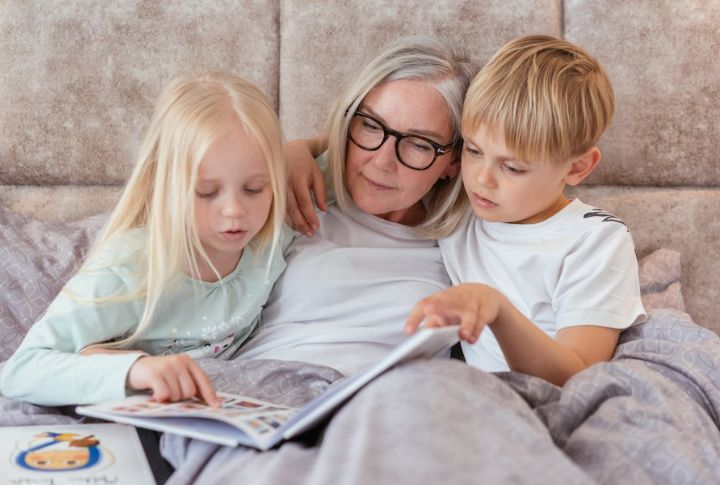
For many, finding or maintaining a meaningful relationship after 50 brings both hope and hesitation. As life shifts—with changing careers and new priorities—it’s common for relationships to become more complicated or harder to maintain. Sometimes, these changes can make love feel distant or out of reach. Let’s take a look at 20 obstacles that can get in the way and how to understand them better.
Fewer Single Women Seeking Relationships

“The Golden Bachelor” paints a rosy picture of senior romance; however, real-world statistics reveal a different picture. According to data from The Senior List, a mere 27% of single women over 50 are actively seeking relationships, compared to 43% of men. This trend leaves most relationship-minded men struggling to find partners.
Long-Term Relationship Baggage

Past relationships leave their mark on the dating scene for older singles, with trust issues and emotional conflicts creating ripple effects in new connections. Men emerging from divorce may find anger or detachment hard to shed, while widowed partners confront lingering sorrow and guilt. Together, such emotional weight can make genuine closeness feel like an uphill climb.
Adult Children’s Opposition

The joy of finding new love after 50 can quickly become complicated when adult children enter the picture. What starts as subtle resistance generally escalates into active interference; children sometimes create emotional barriers and even block their parents’ romantic pursuits. Countless older singles ultimately face a heart-wrenching choice between maintaining family harmony and pursuing their own happiness.
Long “Deal-Breaker” Lists

Where youthful dating embraces spontaneity and possibility, the path to love after 50 reveals a striking change. Years of relationship experience make many singles increasingly selective as they develop detailed lists of non-negotiable choices. The sharpened sense of preference reflects wisdom gained over decades, but it can also narrow opportunities for genuine connection.
Health And Stamina Issues

The physical realities of aging—from chronic pain to reduced energy—reshape how people think about dating. These health-based challenges influence how singles handle intimacy and maintain romantic connections. Most people find themselves adapting their dating rhythms and choosing activities to accommodate their bodies’ changing stamina and capabilities.
Desire For Companionship, Not Commitment

A remarkable shift in modern dating dynamics reveals how older adults are redefining relationship goals. In fact, the research shows women over 50 increasingly prioritize companionship over traditional commitment. This preference for emotional connection without marriage reflects broader cultural changes, as seniors now embrace more flexible partnerships.
Family Obligations Over Romance

For many older singles, the heart’s yearning for companionship takes a back seat to family responsibilities. As potential partners dedicate themselves to caring for aging relatives or spending precious time with grandchildren, the pursuit of romance feels out of reach. These family obligations reshape priorities, making dating secondary to cherished family bonds.
Online Dating Exhaustion

Opening a dating app can feel energizing. Seeing messages from others creates optimism and curiosity. However, soon the interactions become tiresome, and most people notice that many connections never develop. With time, the process drains enthusiasm, and the hope that brought people here fades.
Money Differences

Dating later in life often brings quiet conversations about money, even when no one plans for it. One person may still be working while the other lives on retirement savings, and that gap can shift the balance without anyone meaning to. It’s not really about wealth—it’s about comfort, and feeling safe enough to build something real together.
Entrenched Habits And Routines

The appeal of having a partner comes with a hidden price—adaptation. After 50, most people find security in the habits and spaces they’ve built over time. The longer one has lived independently, the harder it becomes to reshape the balance for someone else, turning shared living into a complex negotiation between affection and autonomy.
Reintegrating Friend Networks

Dating after 50 often means blending established friendships with a new romantic connection. One partner’s longtime pals may feel skeptical or distant, while the other’s circle has established routines. Negotiating these social dynamics can feel delicate, creating moments of awkwardness and subtle tension that accompany the process of connecting personal networks.
Appearance Anxiety

Silver strands and laugh lines are more than physical markers—they spark deep insecurities for older singles. Many fear that the visible signs of aging or minor health concerns reduce their appeal to potential partners. Such doubts grow stronger in a culture obsessed with youth, where appearance becomes a silent test of worth in the modern dating world.
Fear Of Repeat Mistakes

Older singles frequently carry memories of past heartbreaks or unwise choices. When meeting someone new, those memories linger. This influences trust and caution. Even small uncertainties can feel magnified, which leads to hesitation in opening up emotionally. In fact, the fear of repeating prior mistakes colors interactions and shapes perception and approach to intimacy without overtly dictating outcomes.
Legacy And Estate Discussions

Conversations about inheritances or long-term property arrangements often surface unexpectedly in new relationships. These discussions can trigger tension, as partners hold differing priorities and personal histories. Talking about legacy matters requires careful thought, yet the subject remains a constant backdrop.
Cultural Or Community Expectations

Dating after fifty is never just between two people. There’s always background noise. Friends ask questions, family gives advice, and the world keeps sending signals about what feels acceptable. Now, most of these times, people mean well, but their expectations have a way of sneaking into your decisions. After a while, you catch yourself wondering if the path you’re on belongs to you or everyone else around you.
Limited Opportunities For Shared Experiences

Finding activities that both partners enjoy can be challenging after 50, particularly when hobbies or energy levels differ. Even common interests may clash. Opportunities to create new memories together become rarer. The need for compromise and patience intensifies while establishing a rhythm for shared enjoyment and connection.
Different Life Phases

Relationships formed in later adulthood encounter practical tension between differing stages of life. A partner entering retirement might crave freedom and discovery, whereas another remains immersed in professional goals or caregiving roles. Reconciling these directions demands conscious effort to build equilibrium rather than expecting paths to align naturally.
Shrinking Social Circles

Remember when social connections seemed to expand naturally through friends and community socials? Today’s reality looks quite different for older singles. Limited opportunities for spontaneous meetings and fewer community activities make genuine connections harder to build. It’s little surprise that many seniors have stopped pursuing dates, discouraged by how small their social worlds have become.
Managing Emotional Triggers

Small disagreements or reminders of past disappointments can spark disproportionate reactions. Awareness of these triggers and the effort to regulate responses becomes a subtle but critical part of dating after 50. This plays an essential role in shaping trust and the ability to form stable, authentic bonds.
Fear Of Losing Independence

Even when the heart is open, the thought of giving up personal freedom can hold people back. After decades of self-reliance, blending lives again feels like surrendering hard-earned stability. And this stemming hesitation isn’t about love itself—it’s about preserving identity and choice, which can make new relationships feel like a negotiation rather than discovery.
